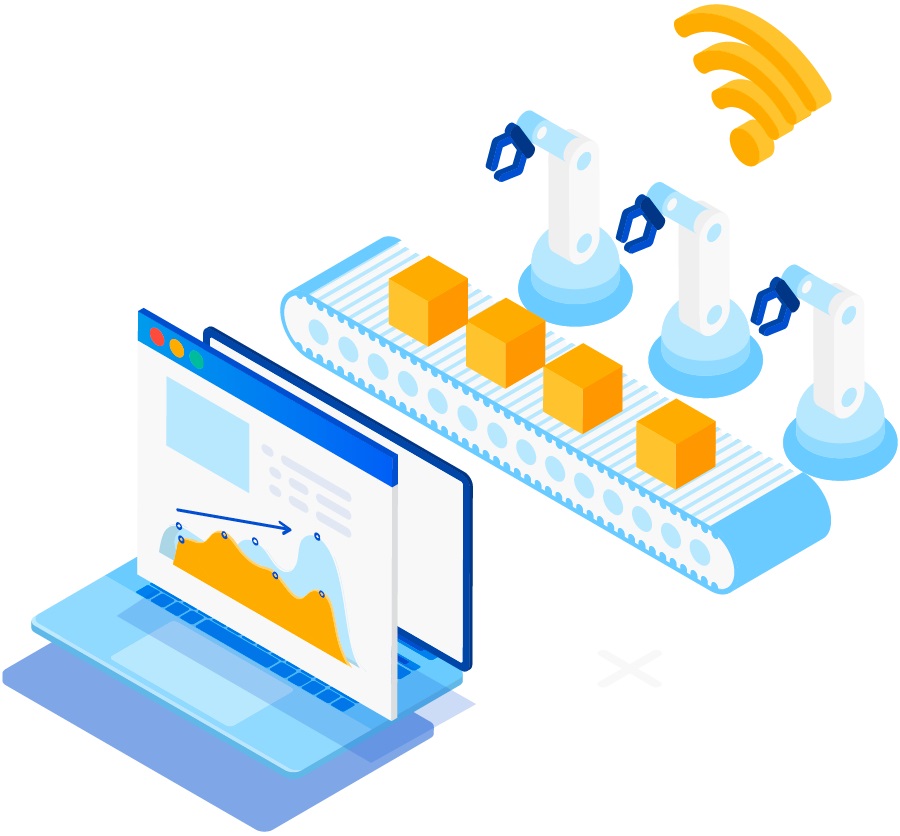Our Artificial Intelligence Applications and Supporting the Smart Factory:
- Predictive maintenance (22.2 percent)
- Quality inspection and assurance (19.7 percent)
- Manufacturing process optimization (13 percent)
- Supply chain optimization (11.5 percent)
- AI-driven cyber-security and privacy (6.6 percent)
- Automated physical security (6.5 percent)
- Resource optimization (4.8 percent)
- Autonomous resource exploration (3.8 percent)
- Automated data management (2.9 percent)
- AI-driven research and development (2.1 percent)
- Smart assistant (1.6 percent)
- Other (5.2 percent).

For example: consider a company that builds cars by procuring parts and components from multiple suppliers. It could use SHADI SYSTEMS SMART ERP system to track the requisition and purchase of these goods and ensure that each component across the entire procure-to-pay process uses uniform and clean data connected to enterprise workflows, business processes, reporting, and analytics. When SHADI SYSTEMS SMART ERP is properly deployed at this automotive manufacturing company, a component, for example, “front brake pads,” is uniformly identified by part name, size, material, source, lot number, supplier part number, serial number, cost, and specification, along with a plethora of other descriptive and data-driven items. Since data is the lifeblood of every modern company, SHADI SYSTEMS SMART ERP makes it easier to collect, organize, analyze, and distribute this information to every individual and system that needs it to best fulfill their role and responsibility.
Our Software Solutions and Smart Factory:
Smart factories rely heavily on advanced technologies and software solutions to automate and optimize their operations. Here are some of the software solutions that are commonly used in smart factories:
1
Manufacturing Execution System (MES)
1
2
Enterprise Resource Planning (ERP):
3
Industrial Internet of Things (IIoT) Platform:
3
4
Artificial Intelligence (AI) and Machine Learning (ML):
5
Computer-Aided Design/Computer-Aided Manufacturing (CAD/CAM):
5
6
Supply Chain Management (SCM):
7
Data Analytics:
7
Our Advanced Applications For Factories Brought:
-
Agile And Flexible Infrastructures:
Provide unprecedented flexibility in areas such as supply chain, so manufacturers can be agile in supplier selection, ordering and procurement strategy, and inventory management.
-
Improved Productivity:
Smart factories can optimize manufacturing processes to increase production rates and reduce downtime.
-
Better Quality:
By using sensors and other monitoring technologies, smart factories can detect defects and other quality issues in real-time. This helps to improve the overall quality of products, reducing waste and improving customer satisfaction.
-
Reduced Costs:
Smart factories can reduce costs by minimizing waste, improving efficiency, and reducing downtime. This leads to lower manufacturing costs and increased profitability.
-
Remote Monitoring And Operation:
The advantage of sensor-based data analytics is to access data and devices on demand.
- Predictive Analysis:
Has improved on-time maintenance, reducing downtime and increasing production.
-
Health And Safety:
Through tracking Employee locations on the facility floor, tracking contacts, and temperature recording all contributed to safe and healthy work environments.
Data Analysis At The Source
The abundance of data generated by the smart edge devices makes it important to analyze the data at the source in a timely manner. it helps Factories are changing their technical architecture, bringing data analysis and artificial intelligence (AI) technology out to the “edge” to take full advantage of the IIoT ecosystem.
